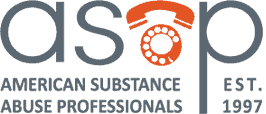In late 2011, SAMHSA announced a working definition of recovery from substance use disorders and mental disorders. The definition was developed as a result of the efforts of SAMHSA’s Recovery Support Strategic Initiative. SAMHSA worked with behavioral health leaders, mental health consumers and individuals in addiction recovery to develop a draft definition and principles of recovery. The aim was to develop terminology that commonly reflected the recovery experience for individuals with substance use disorders and/or mental health disorders.
The efforts to develop a working definition for recovery took several months to complete. A major step in the process began in August 2010 with a meeting with behavioral health leaders to develop a draft definition. It then continued through August 2011 when SAMHSA published the draft definition on its Feedback Forum and blog, opening it up for comments from the public. The blog and forum received over 1950 comments and ideas combined. On December 22, 2011, with the ideas and contributions of many SAMHSA released the working definition of recovery from substance us disorders and mental disorders as:
A process of change through which individuals improve their health and wellness, live a self-directed life, and strive to reach their full potential.
Through the Recovery Support Strategic Initiative, four primary dimensions that support living in recovery were identified; which are health, home, purpose and community. They also listed the 10 Guiding Principles of Recovery which are.
Recovery emerges from hope: The belief that recovery is real provides the essential and motivating message of a better future – that people can and do overcome the internal and external challenges, barriers, and obstacles that confront them.
Recovery is person-driven: Self-determination and self-direction are the foundations for recovery as individuals define their own life goals and design their unique path(s).
Recovery occurs via many pathways: Individuals are unique with distinct needs, strengths, preferences, goals, culture, and backgrounds, including trauma experiences that affect and determine their pathway(s) to recovery. Abstinence is the safest approach for those with substance use disorders.
Recovery is holistic: Recovery encompasses an individual’s whole life, including mind, body, spirit, and community. The array of services and supports available should be integrated and coordinated.
Recovery is supported by peers and allies: Mutual support and mutual aid groups, including the sharing of experiential knowledge and skills, as well as social learning, play an invaluable role in recovery
Recovery is supported through relationship and social networks: An important factor in the recovery process is the presence and involvement of people who believe in the person’s ability to recover; who offer hope, support, and encouragement; and who also suggest strategies and resources for change.
Recovery is culturally-based and influenced: Culture and cultural background in all of its diverse representations, including values, traditions, and beliefs are keys in determining a person’s journey and unique pathway to recovery.
Recovery is supported by addressing trauma: Services and supports should be trauma-informed to foster safety (physical and emotional) and trust, as well as promote choice, empowerment, and collaboration.
Recovery involves individual, family, and community strengths and responsibility: Individuals, families, and communities have strengths and resources that serve as a foundation for recovery.
Recovery is based on respect: Community, systems, and societal acceptance and appreciation for people affected by mental health and substance use problems – including protecting their rights and eliminating discrimination – are crucial in achieving recovery.

